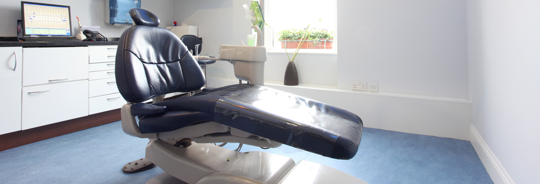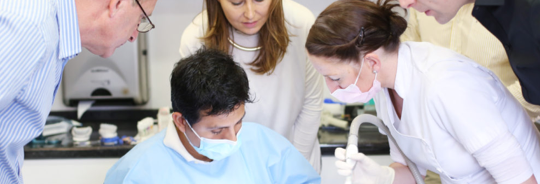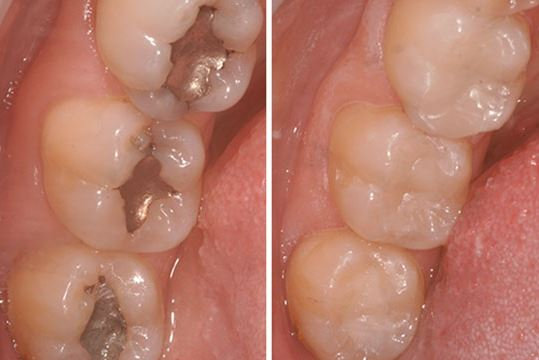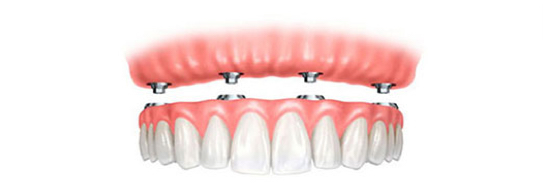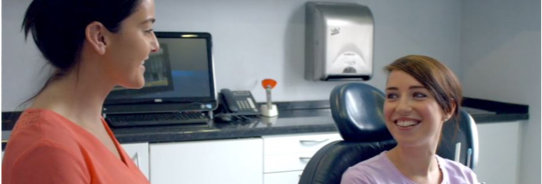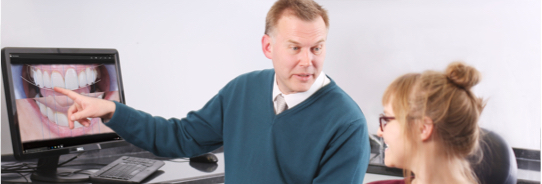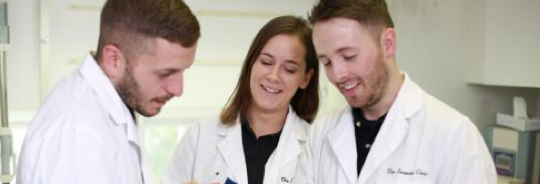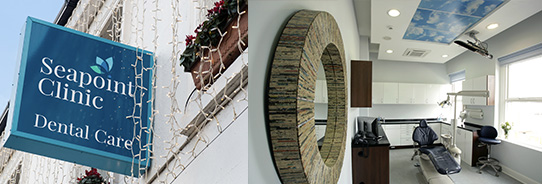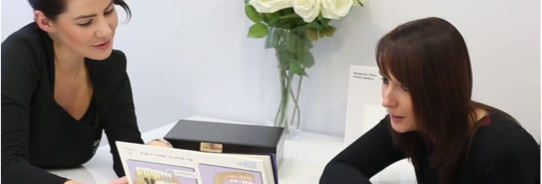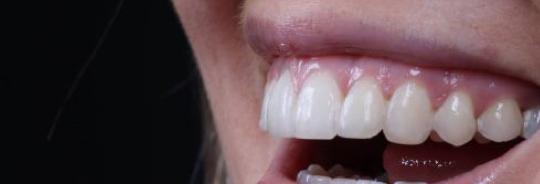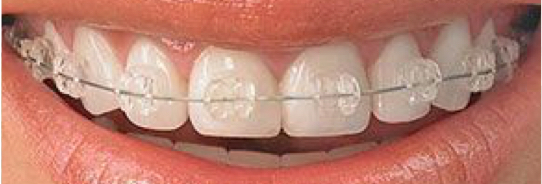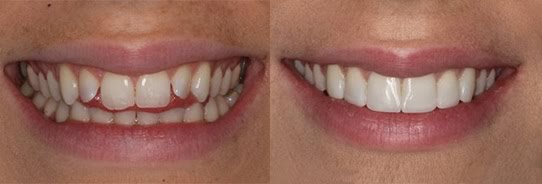
Blog
We post all the latest information here regularly so it's always up to date for you. If there is a topic you would like to have us cover please ask.
2 June 2022
Precision and Innovation: How Dental Lasers Fight Gum Disease

Lasers have revolutionised many aspects of our lives – from medical procedures to everyday gadgets. But did you know they’re also making waves in dentistry?
If you're unfamiliar with how lasers work in a dental setting, you're not alone. The idea of using light to improve oral health might sound futuristic, but it’s very much a reality shaping the way dental care is delivered today.
At Seapoint Clinic in Dublin, state-of-the-art technology, including advanced lasers, plays a pivotal role in helping patients achieve healthier smiles.
We’re not just talking about innovation for the sake of it. Lasers offer a blend of precision and effectiveness that traditional tools struggle to match. To explore this further, let’s break down what makes lasers such a game-changer in treating conditions like periodontal disease and peri-implantitis – and why their benefits might be closer to home than you think.
Harnessing the Power of Lasers for Decontamination
Lasers have a number of important uses in dentistry. Probably the most useful one in our opinion is their ability to decontaminate surfaces. They can focus a huge amount of energy in a small area which can be used to destroy bacterial cells in an instant!
What does this mean for you? Think about how bacteria thrive in hard-to-reach areas of your mouth, such as deep pockets below the gumline. Fully eliminating them with traditional tools alone can be a tall order. Lasers, however, work differently. Thanks to their highly focused energy, lasers can target and destroy harmful bacteria hiding in places ordinary instruments might miss. This makes them an indispensable tool, particularly for treating bacterial infections that compromise your oral health.
Getting to the Root: Tackling Periodontal Disease
The people who benefit most from laser therapy are usually those with active bacterial infections in the mouth. The most common of these is periodontal disease, where nasty bacteria invade the bone around the teeth and cause bone loss, which is usually irreversible.
If you’re dealing with periodontal disease, you know how deeply frustrating it can be. This condition doesn’t just attack the gums; it affects the underlying bone, too, often leading to long-term damage if untreated. Here’s the thing: bacteria are remarkably good at burrowing into places where manual cleaning methods – like scaling and root planing – can struggle to reach.
For many years, the standard treatment for this has been scaling and root planing—physically removing chunks of tartar from under the gumline. But the problem with root planing has always been that it is almost impossible to remove all the bacteria. And this is where lasers really come into their own...
Scaling and root planing physically scrape away tartar, but no tool can guarantee it’s reaching every single bacterial cell. Lasers fill that gap beautifully. Once a traditional cleaning is completed, lasers are used to meticulously decontaminate the area.
Unlike manual tools, lasers can penetrate deeper, killing even the most stubborn bacteria sitting in gum pockets. This not only enhances the effectiveness of the treatment but also improves the chances of healing.
After traditional cleaning is done, lasers can be used to decontaminate and eliminate the remaining aggressive bugs from under the gums. There is no hiding place for bacteria when a laser is used. After laser therapy, the gum & bone have the very best chance of healing properly.
It’s like giving your gum and bone a fresh start. This dual approach – combining well-established manual techniques with cutting-edge laser technology – truly offers the best of both worlds.
When Implants Need a Helping Hand: Peri-implantitis
Dental implants are often hailed as a gold standard for replacing missing teeth. But what happens when the tissues and bone surrounding an implant become inflamed? This condition, known as peri-implantitis, isn’t uncommon. Inflammation and infection around the implant cause the bone to break down, and if left unresolved, the implant itself can loosen—potentially requiring replacement.
Another time lasers are really useful is for peri-implantitis. This is inflammation and bone loss around dental implants. If left unchecked, this can lead to loss of the implants and the teeth they support...
Peri-implantitis can be particularly challenging to treat because the infection takes root on the implant’s surface, a location that traditional dental tools can’t always access effectively. Here’s where lasers make all the difference.
With lasers, we are able to gently decontaminate the surface of the implant, which is extremely difficult (if not impossible) with traditional instruments.
Lasers can target the bacteria clinging to the rough surfaces of the implant without causing further damage to the surrounding tissue or the implant itself. This gentle yet precise approach is key to ensuring the implant remains stable while reducing the risk of further complications.
Why Expertise Matters: Meet the Clinic’s Endodontist
While technology like lasers is undoubtedly a crucial component of advanced dental care, the practitioner’s expertise is the backbone of successful treatment. At Seapoint Clinic in Blackrock, Dublin, you're in exceptional hands.
Dr Marie Caroline Berthelin is the clinic’s dedicated endodontist, specialising in treating infections like those mentioned above.
Dr Berthelin brings a wealth of experience to every case. From her advanced training under internationally acclaimed endodontists, including Yoshi Terauchi and Ove Peters, to her memberships with esteemed organisations like the European Society of Endodontology (ESE) and the Irish Endodontic Society (IES), her credentials are second to none.
Combining her technical precision with a compassionate approach, she ensures that each patient feels comfortable and informed throughout their treatment.
For issues like peri-implantitis or complications requiring root canal treatment, having a professional like Dr Berthelin on your side can make all the difference. She doesn't just rely on her advanced tools but also her deep understanding of restorative and preservative dental techniques, drawing from years of training in both Ireland and abroad.
What to Expect with Laser Dental Treatments
If you’re considering laser therapy, you’re probably wondering what the actual experience is like. Thankfully, the process is designed to be as comfortable and efficient as possible. At Seapoint Clinic, we prioritise both cutting-edge technology and patient comfort.
- Minimal discomfort: Many patients report that laser treatments involve less discomfort compared to traditional methods. That’s because the laser is far less invasive and typically requires little to no anaesthesia.
- Quick recovery: Lasers are remarkably precise, which translates to less tissue disruption and faster healing.
- Customised care: Every mouth is different. By combining traditional methods like scaling with advanced laser technology, treatments are tailored to your specific needs, ensuring comprehensive care.
Beyond Treatment: The Long-term Benefits of Laser Gum Treatment
It’s not just about addressing existing problems; laser therapy also sets the stage for better oral health in the long run. Periodontal and peri-implant diseases can be relentless, but by thoroughly decontaminating problem areas, lasers increase the likelihood of stabilising your condition and preventing further complications.
For instance, if you’re battling periodontal disease, laser treatment reduces bacteria to levels that make it easier for surrounding tissues to recover. And for peri-implantitis, decontaminating the implant surface helps preserve its function, keeping your smile intact.
What’s more, regular maintenance following laser therapy can help safeguard your oral health even further. Many patients at Seapoint Clinic choose to continue pairing traditional cleanings with laser treatments as part of their routine care.
Who Benefits Most from Laser Therapy?
While laser technology can address an array of dental conditions, there are specific groups that stand to gain the most:
- Patients with advanced gum disease: If your gums have deep pockets where bacteria thrive, lasers can target those unreachable spots and assist in halting the progression of the disease.
- Those with dental implants: If inflammation or infection has compromised an implant, lasers can help protect your investment by salvaging and stabilising the surrounding tissues.
- Patients seeking non-invasive care: For those anxious about traditional dental procedures, laser therapy offers a less intimidating alternative with reduced discomfort.
Why Choose Seapoint Clinic for Laser Gum Treatment in Dublin?
Located in South Dublin near areas like Sandyford and Blackrock, Seapoint Clinic has built a reputation for leading the way in high-quality dental care. The addition of lasers into their treatment repertoire is just one example of their commitment to combining modern technology with personalised attention.
With professionals like Dr Marie Caroline Berthelin leading specialised care in endodontics, patients can feel confident in a thorough and thoughtful approach to their oral health. Whether you’re seeking preventive care or dealing with more advanced issues, the clinic’s cutting-edge tools and compassionate staff are ready to help.
At the end of the day, lasers aren’t just a nifty gadget in the dental world; they’re a vital tool in achieving healthier, more resilient smiles. So, if you’ve been struggling with gum disease, peri-implantitis, or another condition requiring precision care, why not see what Seapoint Clinic can offer? Advanced technology and expertise, all in one place. Now, that’s something to smile about.


